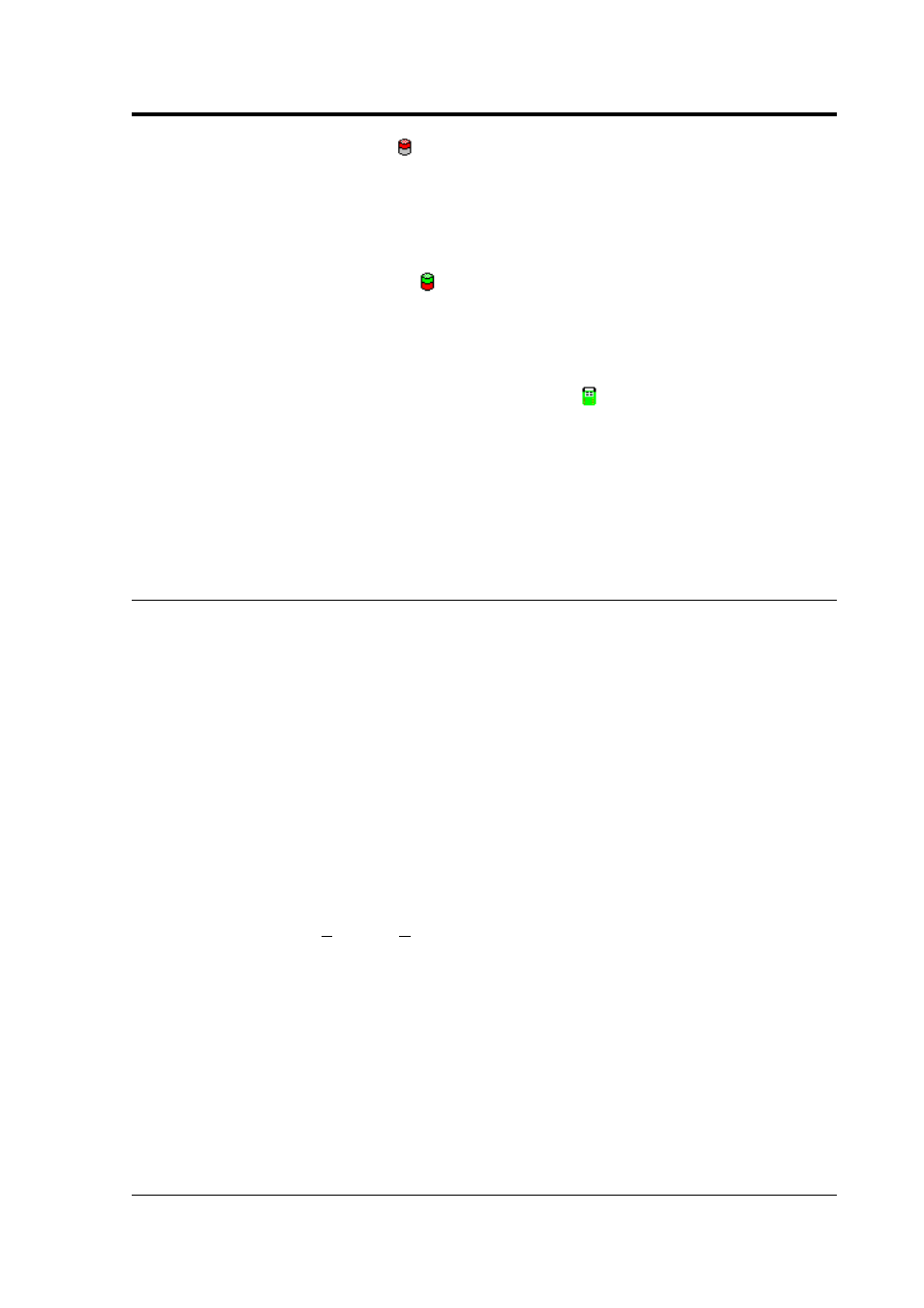5 the stream list – Guralp Systems CMG-EDU User Manual
Page 15

Operator's guide
If the top half is red , the instrument has not reported a satisfactory
timing fix for over an hour. This will happen if the instrument has
reported failures (as above), but also if it has not reported anything. If
you have set the GPS system to power down for intervals longer than
an hour, the icon will turn red even if the system is working normally.
If the bottom half is red , the instrument (or one of its components) is
running with a mass position over 15000 counts—roughly 50% of its
travel. You should re-centre the component if possible, to avoid
clipping after large ground movements.
If the instrument appears as a green box , the instrument has sent
status blocks to Scream!, but no data. The box represents a Güralp
CRM/SAM; these modules store or forward data from other
instruments, but occasionally produce status blocks themselves. If a
digitizer produces a status block before any data, perhaps because you
have configured very slow data rates, it will temporarily appear with
this icon.
3.5
The stream list
If Network is selected in the source tree, the right-hand panel will list
all the data streams which Scream! receives (and is not ignoring.) If an
entry in the source tree is selected, the stream list will only show the
streams beneath that entry—selecting a serial port will only show
streams from instruments connected to that port, and so on.
The columns in the table provide useful information about each
stream.
Stream ID : A unique name for the data stream, being a combination of
six letters A – Z and numbers 0 – 9. Streams ending in 00 carry status
information about the internal digitizer, whilst other streams contain
data coming from connected instruments. The slow-rate
environmental channels (Mux channels) generally have Stream IDs
ending in Mx where x is a hexadecimal digit (0 – 9 or A – F), whilst
other Stream IDs are used for seismic data from attached instruments.
The last number in the Stream ID gives the tap number of the stream:
in order of decreasing sample rate, 0, 2, 4, or 6. If you are using a 6-
channel digitizer, tap numbers 1, 3, 5 and 7 are used for the second 3
channels.
Rec. : Whether Scream! is currently recording the data stream to the
laptop's onboard hard disk. If another device on your network is
recording the data stream independently of Scream!, the entry in this
October 2005
15
